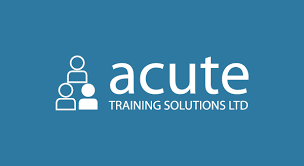This Blood Glucose Monitoring training course is aimed at those working with or responsible for testing blood glucose levels and monitoring the wellbeing of people with low (hypoglycaemia) and high (hyperglycaemia) blood glucose levels.

This Blood Glucose Monitoring training course is aimed at those working with or responsible for testing blood glucose levels and monitoring the wellbeing of people with low (hypoglycaemia) and high (hyperglycaemia) blood glucose levels.
Course information
Blood Glucose Monitoring (BGM) training is crucial for nurses and care staff as it ensures accurate and timely assessment of patients’ glucose levels, which is vital for managing diabetes and preventing complications. This training equips healthcare providers with the skills to use monitoring devices correctly and interpret results accurately.
On completion of this Blood Glucose Monitoring training course participants will be able to identify the signs of irregular blood glucose levels, test patient’s levels of blood glucose and how to manage it effectively. The clinical training course syllabus covers such topics as:
The difference between blood glucose and blood sugar levels?
Signs and symptoms (adrenergic, glucagon and neuroglycopenic manifestations)
How do you define normal and excessive blood glucose levels?
Why do blood glucose levels need to be monitored and controlled?
How do you test blood glucose levels?
When should a blood glucose level be measured?
What is an HbA1c test and how does it relate to blood glucose?
Diabetes complications including nephropathy, neuropathy, retinopathy and cardiovascular diseases
Managing irregular blood glucose levels (diet, activity, medication, etc)
Insulin administration and blood testing (practical demonstrations/discussions)
Legal aspects of giving or supervisions injections
Please note: A competency framework is included in this training. Competency is achieved in the workplace following the training. Each procedure needs to be signed off by a qualified, senior member of staff. The completed document can then be used to identify the individuals’ competence.
Delivery methods
Acute Training Solutions strive to deliver an engaging and informative learning experience in a safe and inclusive environment. All of our training courses are delivered by experienced healthcare professionals across the UK. This healthcare training course is available via the following delivery methods…
We understand that your reputation is built on the quality of your staff and training will ultimately play a fundamental part in their approach to caring for others. We offer over 80 training courses across mental health, clinical, childcare and induction and management; all of which can be tailored to your organisational needs.
Acute Training Solutions work with healthcare providers, councils and NHS units in the UK, training over 10,000 nurses, managers and healthcare workers every year. Some of our more recent clients include…
As well as providing a comprehensive range of training course across mental health, clinical, childcare and induction and management; we’ve grouped together courses that are essential – and relevant – to some of the most prevalent Health and Social Care sectors we work with.
© 2025 coursetakers.com All Rights Reserved. Terms and Conditions of use | Privacy Policy